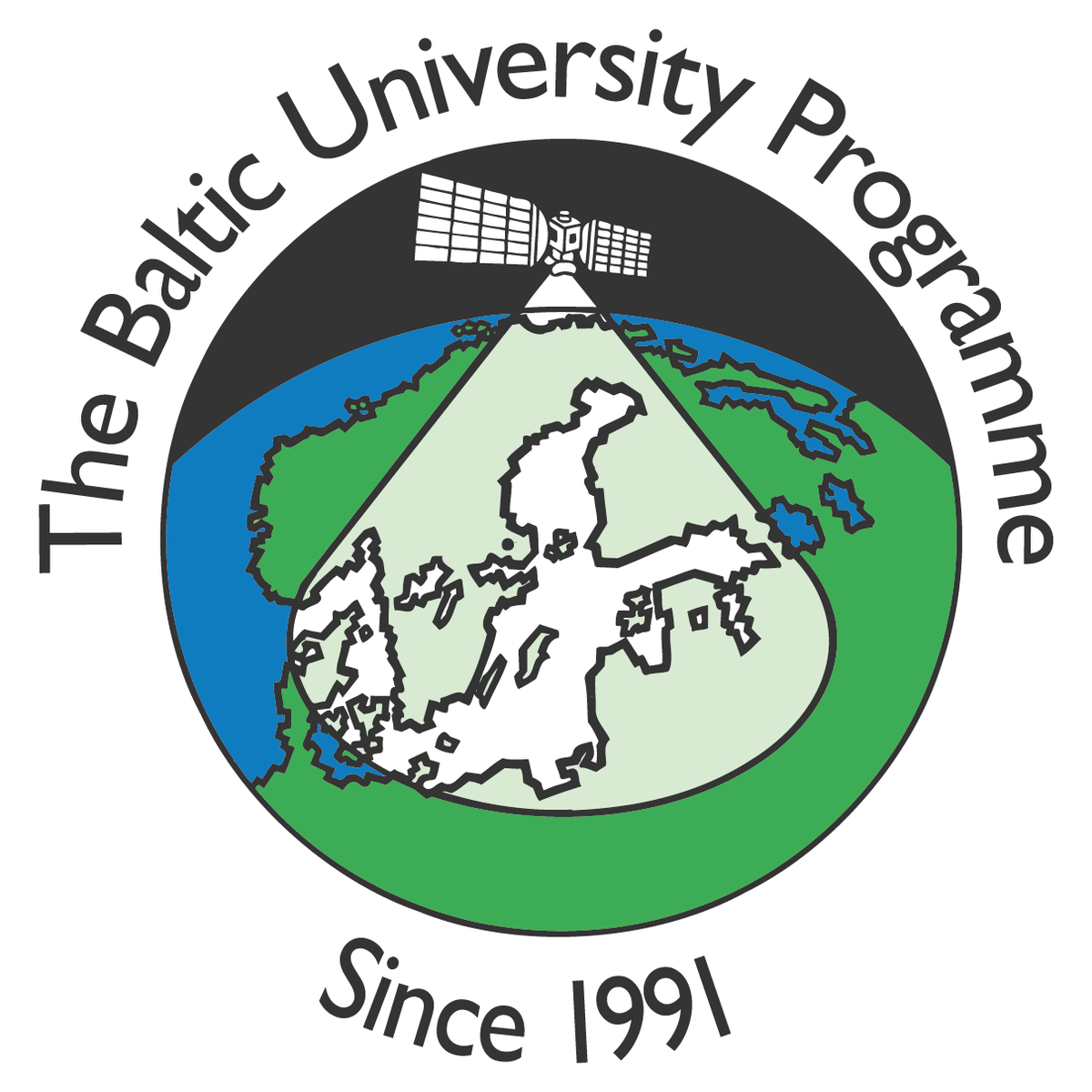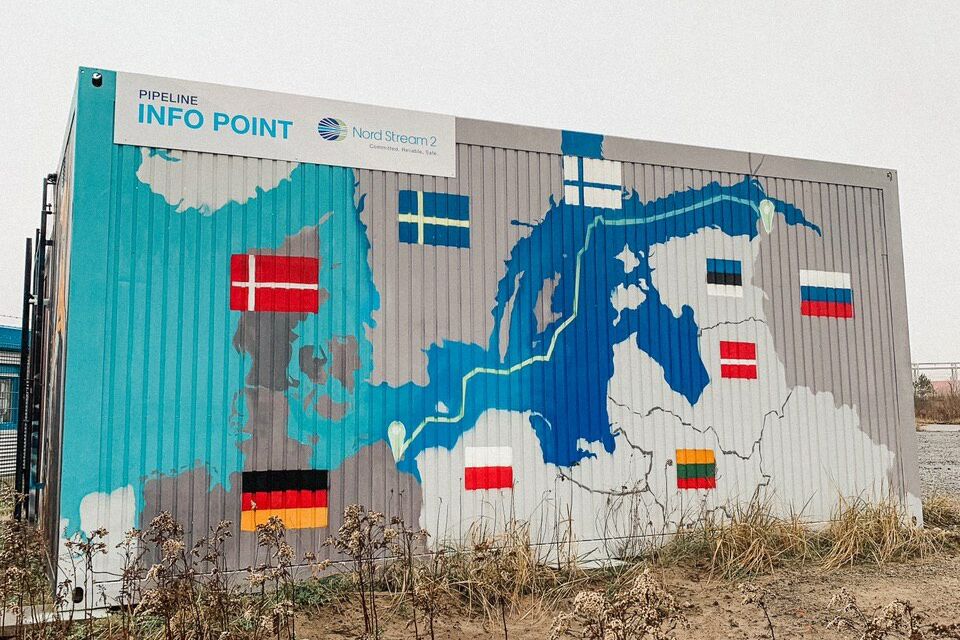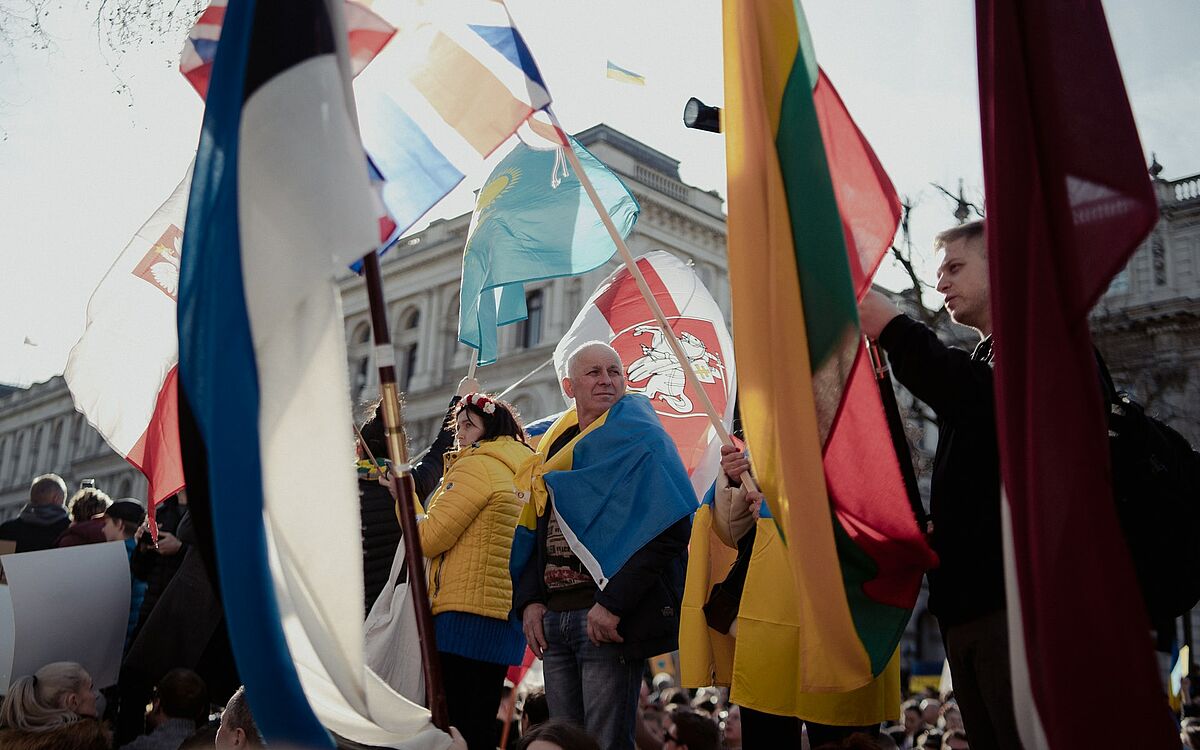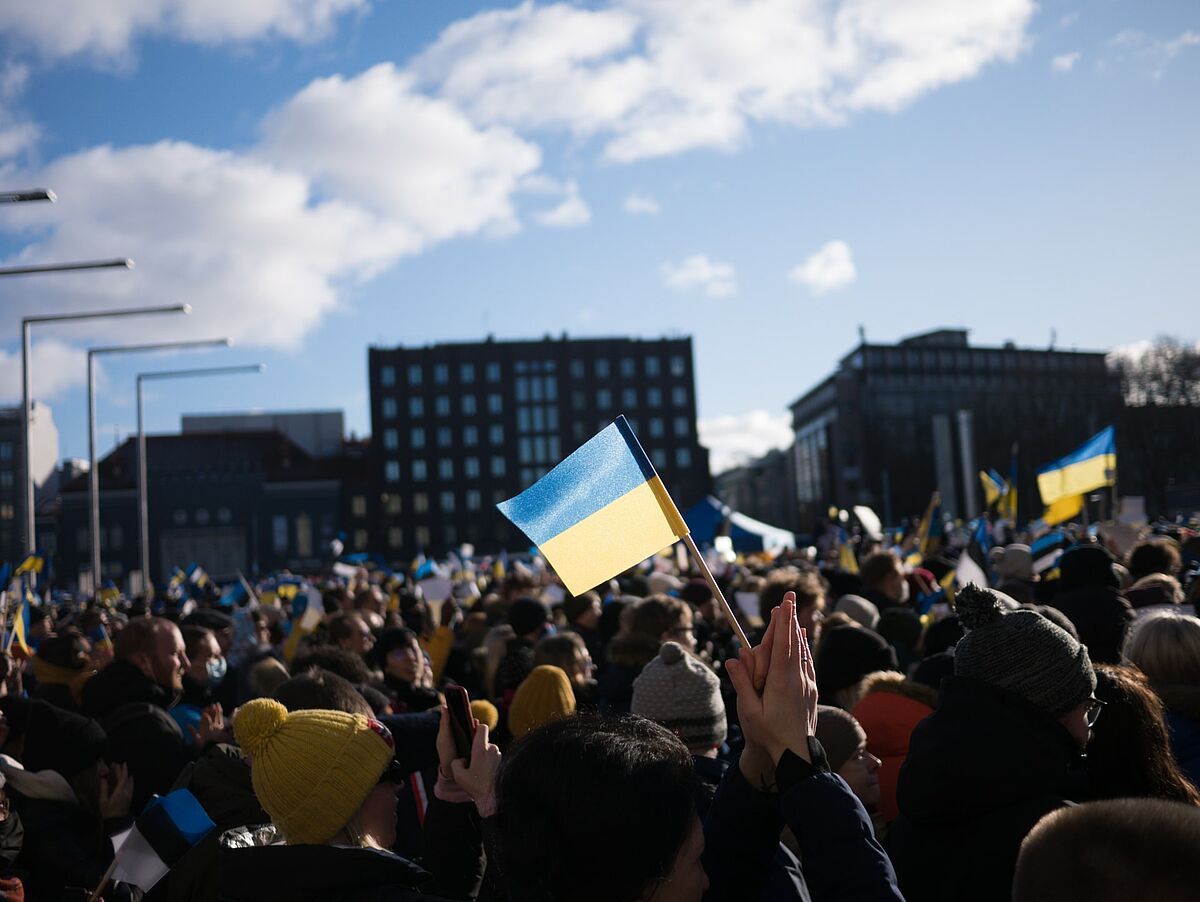
Contexts and insights to Russia's invasion of Ukraine
Fellowship Programme for Ukrainian Academics by the University of Greifswald
Information website of the University of Greifswald: https://www.uni-greifswald.de/en/university/information/current-news/ukraine/
The Construction of Russia's War Identity "Z"
IFZO Podcast Special Episode
In connection with the war in Ukraine, Russian propaganda has pushed the use of the letter "Z", which has received much attention in the Western media, and charged it with many different meanings. IFZO experts Anna Novikov and Anna Efremova talk in detail about Russian propaganda and the use of the letter "Z" and the various identifications associated with it.
PLAY ▶ – The Construction of Russia's War Identity "Z"
Credits - Intro/Outro:
Music: "Hafentor" by courtesy of "Lupus in Fabula".
Seagulls: "Seagulls close-up" by juskiddink on freesound.org (CC BY 3.0).
The podcast is available under license (CC BY-NC-ND 4.0).
The Z-symbol and its history
Radio Interview with Anna Novikov, 01.04.2022
In connection with the war in Ukraine, Russian propaganda has pushed the use of the letter "Z", which has received much attention in the Western media, and charged it with many different meanings. In a radio interview with Bremen 2, IFZO expert Anna Novikov decodes the various meanings from За победу to Запад and contextualised the meanings historically.
The Russian invasion of Ukraine
By Brendan Simms, Suzanne Raine & Donatas Kupciunas from the "Centre for Geopolitic" at the University of Cambridge
The Russian invasion of Ukraine, which began with the annexation of the Crimea and support for separatist movements in two eastern regions of Donetsk and Luhansk, has now culminated in a direct full-scale military assault on the entire country. Whatever one makes of the rights and wrongs of this conflict - and the invasion is certainly a massive breach of international law – it is the job of the Centre for Geopolitics to provide analysis and explanation. ➤
➤ Read the full article on the Centre for Geopolitics's website.
Support for Ukrainian scholars and students - compiled list of information
By the Baltic University Programme

The Baltic University Programme has put together a list with different initiatives in Europe and the rest of the world which aims to help scholars affected by the war in Ukraine.
The Baltic Science Bridge, is an initiative to support Ukrainian scholars and scientists unable to work due to the war. The initiative is being led by the BUP Associate Secretariat at the Hamburg University of Applied Sciences. The Baltic Science Bridge is meant to give Ukrainian scholars and scientists an opportunity to live and perform some academic work in a Baltic Sea country which is not part of the conflict. Read more about the initiative here.
Ukraine - over 1000 years of history
An article by the University of Gdansk
In 1991, the Ukrainian Soviet Socialist Republic ceased to exist and Ukraine declared its independence, and Poland was the first country to recognise this act. Since then, there has been a process of Polish-Ukrainian reconciliation, which, despite difficult periods and disputes over history, has continued, as we have seen in recent days. Dr hab. Magdalena Nowak, prof. UG from the Department of Modern Polish History, Institute of History, Faculty of History, UG, reminds us about the history and history of Ukraine. ➤
➤ Read the full article at: https://ug.edu.pl/news/en/2830/ukraine-over-1000-years-history
- Ewa K. Cichocka / Press Office University of Gdansk
Time for heroes?
14.03.2022

The last few weeks of fighting in Ukraine have produced new heroes. In fact, wars have always produced heroes. Ukraine’s president Volodymyr Zelensky, who has remained in Kyiv during the Russian aggression is seen as a hero, whose heroism is manifested by his courage and masculinity. The Ukrainian border guards on Snake island, who sent the Russian warship to go “f**k themselves” and firstly were thought to have been killed, have appeared as heroes, partially because of social media memes and rapid integration into the popular culture. It seems that during this tragic and horrendous war, the outcome of which remains unpredictable, many others will be celebrated as heroes. Is it a time for heroes and heroism? ➤
➤ What is a hero? This is indeed a difficult question to answer. Heroes do not exist on their own. Heroes are made – in our time, particularly through images and they need someone to recognise and venerate them as such. Yet, almost always the heroes and their deeds can be easily contested. Joan of Arc is a hero for the French and has been a symbol of their national identity for centuries, but she was an enemy for the English and also, at times, for the Catholic Church, therefore she was burnt at the stake. The actions of an illiterate peasant woman who dressed as a man and fought on the battlefield were seen as heroic acts by some and heresy by others. Sometimes heroes easily become antiheroes or even worse – they suddenly are no more heroes and get forgotten. Pavlik Morozov, a thirteen-year-old peasant boy who denounced his father to Cheka for stacking grain and therefore was killed by his family, was a Soviet hero, highly praised and venerated; after the collapse of the USSR, this communist martyr is seen as rather an example of misfortune and cruelty of a totalitarian system. During the twentieth century the European societies have experienced construction and vanishing of numerous heroes, who have been supported by authoritarian and totalitarian systems and forgotten quickly when the regimes had waned away.
Once again, wars makes heroes. Alexander Nevsky, the thirteenth-century Russian duke and military leader, has become an Orthodox saint yet he became known already in the Middle Ages because of his victories against the Swedes at Neva (1240) and the Teutonic Order at the Battle on the Ice (1242). Alexander Nevsky, who possibly is one of the best researched medieval heroes, has had a centuries-long career: from a protagonist in the medieval chronicles and hagiographies, to becoming the patron saint of the Russian Empire, a Soviet hero during the Second World War with his own movie made by Sergei Eisenstein and finally being a most famous historical figure in modern-day Russia, with numerous monuments erected. A medieval man embodies in himself many meanings and usages that have nothing to do with the historic context this man lived in. But many different historical contexts found him useful as a hero.
Because the heroes can inspire and mobilise and are used as role models to be imitated, they are problematic. Heroes can be used and abused in many ways in service of ideologies and propaganda, especially those, who have died long ago. German sociologist Ulrich Bröckling in his book Postheroische Helden (2020) argues that the age of historical heroes, almighty, coreagous men, is gone and we have reached the post-heroic age. The post-heroic heroes are questioned and deconstructed.
The war in Eastern Europe now is creating heroes – military ones and martyrs. The act of heroism can be the death of a young soldier during the defence of a Ukrainian city against the invaders; meanwhile also a woman who protests against the war in Russia by holding a blank placard can be seen as a hero, because such a simple act may have dire consequences.
The war is waking up historical heroes as well. This is a time to look at heroes in the past, to research them carefully, to understand better the emergence of heroes and heroes and heroic figures in the present. Our project: “Saints and Heroes from Christianization to Nationalism: Symbol, Image, Memory (Nord-West Russia, Baltic and Nordic countries)” was intended to research and deconstruct medieval heroes in their afterlife, yet the war has stranded the cooperation with fellow scholars from the Saint-Petersburg State University. The work of deconstructing heroes and questioning them will not be stopped though.
- Gustavs Strenga
The Energy Trilemma in the Baltic Sea Region: Equity, sustainability, and security in times of war and crisis
04.03.2022

The invasion by Russia of Ukraine raises a number of energy questions for the states of the Baltic Sea Region. The interconnectedness of the region with Ukrainian and Russian energy systems, as well as Russia’s significant position in global energy markets more broadly - mean that the invasion will have a secondary impact on regional energy policy. The suspension by Germany of the certification procedure for Nord Stream 2 - perhaps the most significant manifestation of energy and geopolitical tensions between regional states – represents the most tangible consequence for regional energy programmes so far, but the consequences of the ongoing conflict are likely to be more far-reaching. ➤
➤ Concerns over security and affordability of supply are likely to shape energy policy responses. Ensuring the transit of supplies through Ukraine, ensuring continued supplies of Russian gas and oil, and finding alternative sources on the market if necessary are all more immediate policy goals to mitigate security concerns, particular for states with higher import dependency rates. Germany, for example, has acted swiftly to propose a new target of 100% renewable electricity by 2035, and there have been comments concerning the suspension of various programmes to close nuclear power plants and coal mines. Mecklenburg Western-Pomerania is also considering the dissolution of the Climate and Environmental Protection Foundation, an organisation in support of Nord Stream 2 founded by the federal government of the Mecklenburg-Vorpommern region but funded almost entirely by Gazprom. All non-Russian regional states have supported wide-ranging EU sanctions, including those on individuals with close ties to the energy sector. The willingness of consumer states in the region to implement sanctions on Russian energy actors despite the likely domestic cost may suggest that broader security risks outweigh the potential economic and political consequences of higher costs. There has not, however, been any move towards a wholesale embargo on Russian energy imports. This represents a continuation of the economic pragmatism that defined east-west energy relations during the Cold War and indicates that such a move would be a very last resort.
Nonetheless, the question of affordability and the economics of supply may play a significant role in forthcoming energy policy debates. The conflict and consequent sanctions on energy actors are likely to drive up already high energy costs for domestic and business users. The implementation of Germany’s proposed new renewables strategy will also require significant upfront investment and these costs, together with the expected raise in energy tariffs, will reinvigorate the debate on a just energy transition. Where funding for these costs will come from is currently unknown: these expenses, together with the promised special fund for the Bundeswehr (armed forces) and current government commitment to not raising taxes will also lead to a difficult debate in parliament.
At the same time, the essentiality of hydrocarbon imports for, particularly, the transportation and heating sectors remains unchanged. The role of natural gas in the energy transition is likely to be revisited only weeks after the EU’s declaration of natural gas as a transition bridge fuel. The source and route through which natural gas is imported will be central to any new debate, with the avoidance of Russian sources and routes through potentially unstable countries necessary to maximise energy security. Several regional states have already taken steps in this direction: Poland and Lithuania have relatively significant LNG processing and storage facilities in place, while the early inauguration of the Poland-Lithuania gas interconnector later this year will bring the three Baltic States and Finland into the EU gas network – and away from sole dependence on Russian gas – for the first time. The role of natural gas in the heat sector is another likely consideration for policy makers, and there have been increased tendencies in recent years to advocate for the direct electrification of that sector.
Together, these considerations point to an imminent engagement with the “energy trilemma” for regional states: the necessity to take into account and balance energy equity, energy sustainability, and energy security. There is currently a strong focus on renewables and domestic resource management as the main pillar of security of supply, but this will likely be tempered by costs and the need for short-term hydrocarbon contracts to make up for shortfalls elsewhere. The current situation will consequently also highlight how security, the energy transition, and consumer energy prices and social welfare are related. Where and how regional governments precedence each of these areas cannot be predicted at this point. New import partners, patterns of cooperation, and energy trade regulation mechanisms will likely arise as states seek to diversify away from Russian energy sources and towards new renewables, hydrogen, and LNG trade in particular. In short, policies pursued by regional governments, and the long-term impacts of the invasion on regional energy systems, may contribute to a significant reshaping of regional energeopolitics.
- Mary Keogh, Michael Kalis, and Judith Kärn
Geopolitics in times of Crisis: German-Baltic strategies aligning at last?
02.03.2022

The invasion of Ukraine is at the end of a long chain of warnings that the Baltic States have been carrying into the political heart of Europe for decades. Speaking at the Hanseatic city of Hamburg in 1994, Estonian President Lennart Meri stunned the gathered dignitaries with a dire proclamation. Turning to the German political classes, he submitted that due to Estonia’s close proximity to Russia, the nation had developed a stronger instinct than the rest of the West when it comes to the threats looming from Moscow. In his view, Germany and Europe at large stood before a fateful choice: “Either the neo-imperialist policy of a great eastern power will be tolerated, financed, and in the short term, possibly even profited from […] or the notions of democracy, freedom, responsibility and peace will be helped”. A certain junior official from St. Petersburg, so enraged by the speech, had stormed out of the room. His name was Vladimir Putin. ➤
➤ A certain paradox has pervaded the German-Baltic relations for decades. Tightly linked through culture, art, education and genuine societal affinity for each other, in the realm of military power the two sides could not be further apart. Where over the years German leadership talked about the notion of perpetual peace and positive transformation through trade, the Baltic states, in stark contrast, stuck to the worldview of military power playing a central role in human affairs. At a time when Western Europe kept extending an olive branch to Russia, Eastern Europeans asserted that one day this will be instrumentalized by the Kremlin for its own geopolitical ends. The prevailing view among the Baltic lawmakers regarding Germany has been one of a country that mistakenly bought into a certain end-of-history paradigm.
As the Russian troops began to ominously encircle Ukraine’s borders, these sharply different worldviews spilled into the open, straining the otherwise excellent German-Baltic relations. Latvian Defense Minister was first to roil the diplomatic waters by slamming German officials in the international press: “They’ve been living in peace for years. They think about gas, exports and co-operation. For us border countries, it’s different. For us it’s existential. Our past doesn’t give much chance of just trusting [Russia]. It would be death for us.” After Berlin blocked the Estonian government’s attempts to transfer Cold War-era howitzers to Ukraine, scornful mumblings about Putinverstehers filled the hallways of Baltic ministries.
The initial German response to the Ukraine crises invoked unpleasant memories. For example, in the aftermath of the Russo-Georgian conflict in 2008, Estonia, Latvia, and Lithuania had pressured NATO to develop specific military contingency plans for their territorial defence. Behind the public curtain, Germany proceeded to block the resolution on the grounds that this would be too provocative towards Russia. Only after repeated insistence by Washington did Germany drop its veto. The notion of the German government as an unreliable security partner, however, took a stronger root.
With the Russian efforts now underway to brutally dismember Ukraine, there is a great deal of “we told you so” coming out of the Baltic republics. That said, now is not the time to engage in a self-serving political point-scoring. The naked truth is Estonia, Latvia and Lithuania need Germany as a security actor more than ever. The Estonian Prime Minister once aptly summarized the Baltic predicament: “We have the friends we have, and we cannot push them away. And if we say we don’t need you anymore, then it might end in a place that is very, very lonely. We have already been there if you look at our history. We don’t want to be there anymore.”
In a sweeping change, the German government has now undertaken a host of decisions: nullification of the Nord Stream 2, considerable increase of the defence budget, adoption of a massive sanctions package against Russia, and arming of Ukraine. Even a single of the listed policy items would have previously been considered as a significant crossing of the threshold. Combined, they give the impression of a country undergoing a tectonic shift in its assumptions about Russia. In a matter of days, Vladimir Putin has managed to discredit decades-held orthodoxies about the Russian Federation. Observing these decisions by Berlin, Baltic political elites have been supportively nodding along.
By the looks of it, Germany and Europe writ large is undergoing a major strategic course correction. Latest polls suggest that 78% of Germans are on board with the government’s proposal to significantly increase defense spending. Three decades after the fall of the Berlin wall, threat perceptions are finally converging across the Baltic Sea region. This, of course, should be tempered by the fact that many disagreements still abound about exactly how to structure such dramatic increase in military financing. Moreover, one ought to remain cautious regarding the speed with which genuine change can be ushered in. Addressing the Bundestag, Chancellor Olaf Scholz urged: “We need planes that fly, ships that sail, and soldiers who are optimally equipped for their missions”. That, to be fair, will take time to fully materialize. To provide one illustration, in 2021 France, Germany and Spain announced plans to develop a European-based fighter jet. Realistically, Europeans will see them in the sky by 2040. In the foreseeable future, Europe will remain highly dependent on the US security umbrella. At the current moment, however, the most pressing issue for Europe should be the firm backing of Ukraine. After all, to borrow words from the Ukrainian national anthem: “Ukraine’s freedom has not yet perished”.
- Dr. Andris Banka
On the border
25.02.2022

The invasion of Ukraine by Russian troops raises broader questions beyond the unprecedented breach of international law and the European peace order. There is consensus that Vladimir Putin's speech on 21 February 2022 and the formal recognition of the self-proclaimed People's Republics of Lugansk and Donetsk have abrogated the Minsk Agreement. Today also marks the end of the Budapest Memorandum of 1994, in which Ukraine surrendered all weapons capable of carrying nuclear weapons in return for, among other things, the exclusion of military occupation and the recognition of territorial integrity and political independence by Russia, Great Britain and the USA. As many of Putin's current actions make clear, he wants to correct the consequences of the post-1989 policy of opening up under Mikhail Gorbachev, which was perceived as an expression of weakness - not least with the means of historical revision and national history construction. ➤
➤ This antagonistic mythography also affects economic and energy policy issues, as the argumentation for bypassing Ukraine in the construction of Nord Stream 2 shows. The fact that a radical restriction of financial and energy markets as a sanction against Russia is hardly enforceable also shows the interconnectedness of the region through energy policy and economic interests. However, the pro-European and pro-democratic Orange Revolution of 2004 as well as the Euro-Maidan protests in 2013 give the lie to the claim that Kiev is a fascist regime. The term "denazification" places the invasion of Ukraine in historical continuity with the liberation of Europe from German Nazism - a sad reversal and questioning of the historical achievement of the Allies, including Russia, in World War II.
What does the Russian attack mean for the Baltic Sea region? Can this act of questioning Ukraine's independence as a nation be used to draw conclusions about the fears of the Baltic states? Although, in contrast to Ukraine, these states gained their first state sovereignty after 1918 and are now already NATO members, they have been subjected to extensive Russification through the occupation in the 1940s and Sovietisation, so that cultural, linguistic, religious and memory-political differences can also be found here. Russian-speaking minorities also live here. If one wanted to revise history on a large scale, one could finally reach back to the Battle of Poltava in 1709, which ended Swedish supremacy in favour of Tsarist Russia, in order to establish a supposed Russian dominance in the Baltic Sea region today. Historical borders and their shifting could be used to justify a multitude of power-political anachronisms.
The current image of history conveyed by Putin, as well as the denial of territorial and state existence not covered by international law, represents an unprecedented instrumentalisation of historical politics to legitimise a war of aggression. This not only has long-term implications for diplomacy, international law and Europe itself, but also poses a challenge to historical, cultural, energy and political studies. It is a watershed event that will entail reassessments of the nexus of energy and foreign policy in the Baltic Sea region, not only in terms of Nord Stream 2 and interpretations of the security architecture. Rather, Putin's interpretations raise questions about the difficult handling of common or even divisive history and culture in a heterogeneous cultural space. Borders are not only symbols and de facto markers of territorial demarcation, but also signify cultural, historical and social demarcations that have a direct impact on the people who live in these spaces. Wars inevitably lead to mass loss of life, but also to the destruction of cultural assets, language, minority rights and the independent development of political and social forms of participation. However, the Ukrainian state border, which distinguishes it as a sovereign state in Europe, is not open to negotiation and interpretation.
- Antje Kempe (in cooperation with Cordelia Heß, Frank Rochow and Alexander Drost)
